Bee Removal – Dealing With Problem Bees
I get commissions for purchases made through links in this post. View our Affiliate Disclaimer.
While we all enjoy the sweet produce of the bees, they sometimes invade spaces where co-habitation with humans is a problem. In these instances, bee removal is the only option. If you are concerned with preserving bees as a global resource – and you should be – then there are some guidelines that should be followed when dealing with problem bees.
When Is Bee Removal Necessary
When the bees take up residence on your property, you need to evaluate a couple of things. These will help to determine whether removing them is even necessary at all.
Additional Essential Homestead Resources
✅ Medicinal Garden Kit - Grow medicine in your garden! A collection of seeds to get you started.
✅ Homesteaders Handbook - A printed book that covers all the basics for homesteaders.
✅ The Self-Sufficient Backyard - This book is an excellent resource for self-sufficiency on 1/4 acre!
✅ Into The Wild Survival Pack - Learn foundational survival skills every homesteader should know!
- Are you or any member of your family allergic to bee stings? This could be one of the primary deciding factors for bee removal, but not in every case. If you have a garden, there will be bees foraging in among your plants anyway. If a swarm moves in, however, there will be more bees around. But check to see if they really pose an increased risk.
- How close are they to your house? If the bees have made a home high in a tree at the bottom of your garden, are they really a risk? The areas where bees would be a problem would be the following.
- Close to or in your home,
- Places where your children play,
- Where you entertain, or have recreation time with your family
- Areas of high traffic such as garden paths or a garden shed or workshop.
When you notice a swarm has moved in to an undesirable location, it is important that you act quickly to remove the swarm. If the bees are allowed to settle in, particularly in a hard to access location they can be very difficult to remove and become very protective of the location.
Why Is Bee Removal Necessary
Dealing with problem bees is a conundrum for people, particularly those who are conservation minded. Bees can be a problem for us humans, but there is now doubt to the role they play in our own survival. Bee populations globally are under threat, and diminishing.
The main reasons for the decline are commercial agriculture, the use of pesticides, parasites and climate change. Other factors that contribute to the problem are destruction of habitat, the loss of biodiversity, and large tracts of land dedicated to monoculture that reduce the forage available to bees.
Bees benefit humans far more than the average person is aware of. Bees are responsible for the pollination of 35% of our food crops globally. They not only pollinate these crops, but boost the yield of these crops, giving us more harvest per hectare!
Bees are also responsible for pollinating 90% of wild plants that support the natural eco systems that we love and enjoy!
The decline of bees could even affect our ability to farm beef and dairy. This is due to crops used for raising cattle such as clover and alfalfa being pollinated by these busy workers!
I am sure you will agree that it is therefore important to conserve this important natural resource. This means taking responsible decisions when it comes to bee removal.
Bee removal should be exactly that. A relocation of the swarm, rather than destroying the hive is the end result you should be looking to achieve.
Bees are not a pest to be exterminated, but rather a resource to be handled with care!
Who To Contact For A Bee Removal Situation
People with problem bees often don’t know where to turn to for help. The only resource that usually comes to mind is the local exterminator! Unfortunately, these companies are usually not geared up for dealing with problem bees. They resort to pesticides to kill the bees rather than remove them.
The best people to call for a bee emergency are people who understand these creatures. People who work with them on a regular basis, and understand the value of preserving them as a resource!
You guessed it! A beekeeper! Most communities will have someone who keeps bees either as a hobbyist, or as a bee farmer. These are the ideal people to contact when you have a swarm move in to a problem area on your property!
Why Are Beekeepers Good For Bees
Beekeeping requires an intimate knowledge of bees, their behavior and their habits. Beekeepers come to know these creatures very well and understand how they will react in certain situations and how to extract bees with minimal disruption to their communal society.
Beekeepers also understand the importance of conserving the bee population and thus are usually dedicated to a safe removal and relocation of the intact colony. This allows the bees to remain a productive part of the natural environment and to continue to support human life!
A bee removal operation is normally conducted in the evening. During the day, many of the bees are out and about foraging for food and water. They return to the hive in the evening to rest. This is the ideal time to collect the swarm and relocate the bees. This is to prevent bees getting left behind in the removal process. Removing bees during the day is generally an irresponsible method. It usually results in many homeless bees hanging around the nest site, and the destruction of the hive as the removed bees will struggle to settle into a new environment.
Migratory swarms that have not established themselves in a home yet can be removed during the day, as the majority of the bees will be forming a protective layer around the queen.
Once a beekeeper has removed the swarm, they will be given a nice comfy home in a new hive. The bees will then do what they do best, pollinate plants and make honey for the beekeeper. In turn, the beekeeper will take care of the bees by maintaining their hive, and relocating the bees to new food sources at various times of the year, and protect the bees from invading pests and diseases.
This helps to strengthen the colony, and allow them to reproduce and release new swarms on bees into the wild. In this way, the problem bees have now become a productive colony, protected from being destroyed and the world benefits from more bees performing their invaluable service to us!
Why Do Beekeepers Charge For Bee Removal?
Beekeepers who remove problems bees usually incorporate the bees into a hive and put them to work as an active colony for the beekeeper. The bees produce honey or are hired out as pollinators for farmers crops. Some people feel that because the beekeeper is getting the colony, they should not be paid for bee removals.
There are however, easier ways for a beekeeper to increase his colonies. He can trap migrating swarms, or split one of his own strong colonies into two colonies. Removing problem bees is a costly endeavor for the beekeeper. It often requires multiple trips to the site to remove the bees. First the site must be inspected to establish how difficult the rescue will be, secondly, to return in the evening to do the actual removal and in some cases a follow up trip the next day to make sure the site is inaccessible to new swarms. This travelling has a cost to it.
Another cost factor for the beekeeper doing the removal is the time and physical labour required to actually extricate the bees from their space. In my experience, bees have the habit of making their homes in the oddest and sometimes very difficult to access places. Some of the favourite places are municipal water meters, pool pump housings, wall cavities, chimneys and under floors of wooden garden sheds!
Another cost involved is a new hive to home the swarm. A hive can cost in the region of $80 to $100 (R1200 – R1500)!
Conclusion
When a swarm of bees takes up residence on your property and poses a danger which requires their removal, do NOT call an exterminator. They will do just that, exterminate the bees. This is not the way to conserve the world be populations.
To deal with a problem swarm of bees, contact a local beekeeper to perform the bee removal. This way, the bees will be responsibly removed and the colony preserved. This is one way conservation minded people can contribute to keeping global bee populations from declining.
As a beekeeper, I offer a bee removal service in Randburg, bee removals in Fourways and bee removals in most of the Northern suburbs of Johannes burg, South Africa.
If you need a bee removal service in the northern suburbs of Johannesburg, complete the query form below. I will make contact with you to arrange a site inspection and plan the bee removal operation.
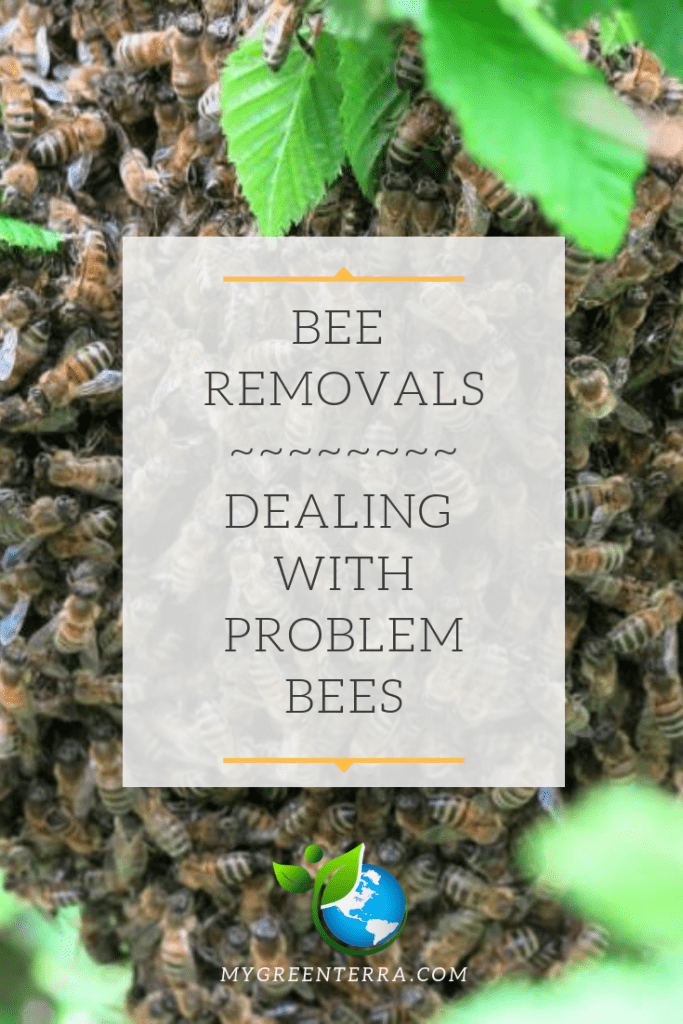
Get more posts like this
Subscribe to our mailing list and get interesting homesteading and green living info and updates to your email inbox.
Thank you for subscribing.
Something went wrong.

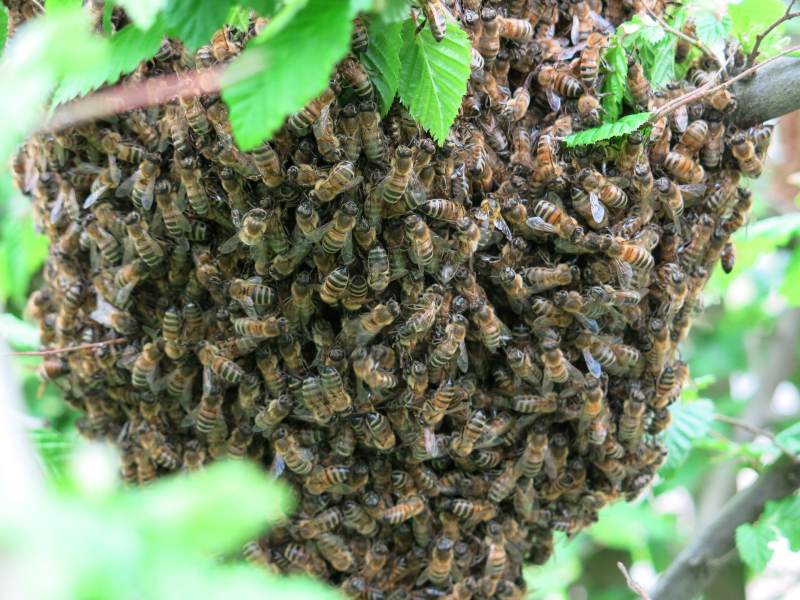

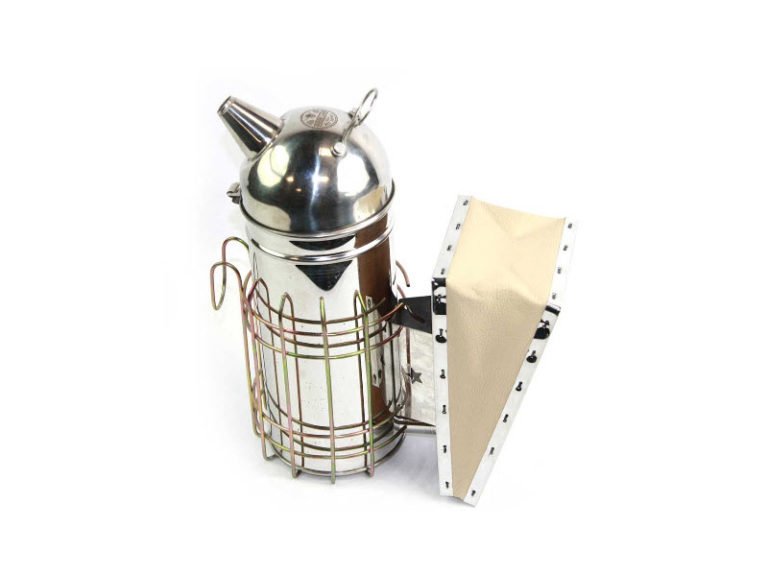
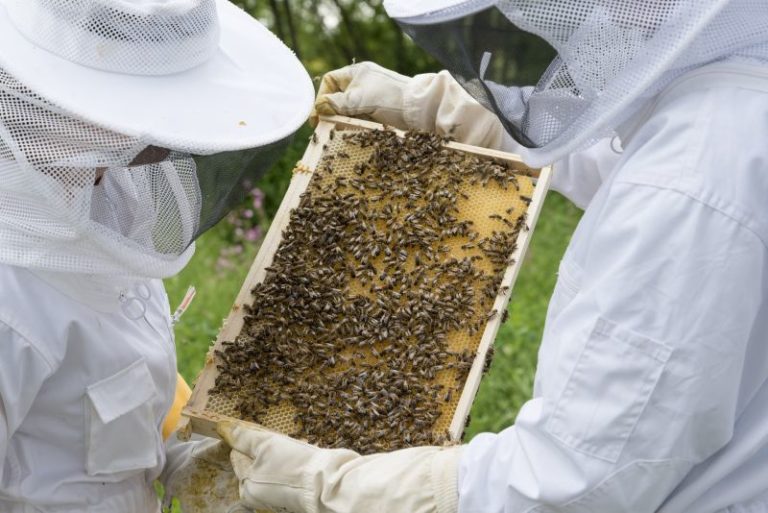
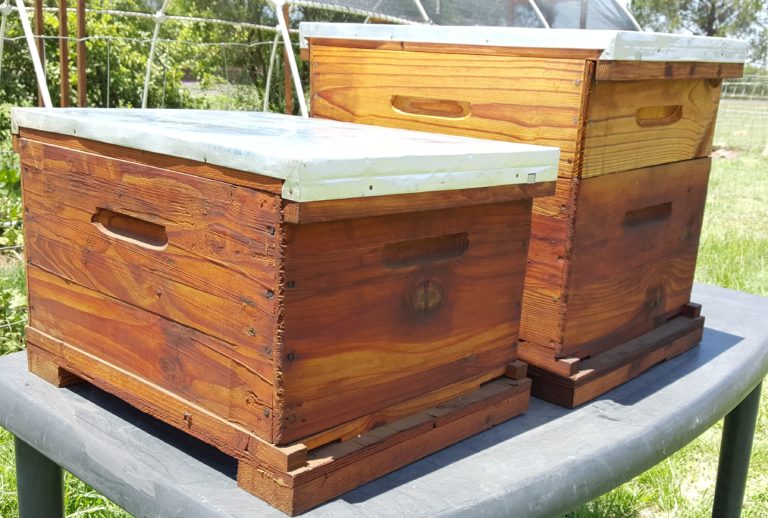

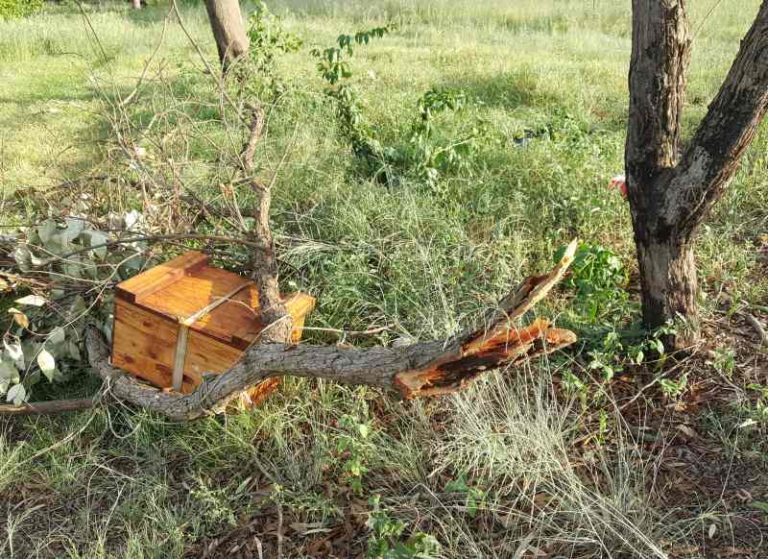
Thanks for drawing my attention to your blog by Likeing and Following mine!
When I was beekeeping, dairy cow pastures grew wild and diverse. Nectar flowed all summer according to the precipitation, and varied during the season according to what was blooming.
When I was beekeeping, dairy cows roamed freely. Confining cows to stalls for their entire adult life was a new idea that only the most innovative farmer dared to try. I shuddered when I read your mention of the problem of monoculture for bees. Hive management must be so different now as you consider what the yield will be from the current and upcoming limited crops.
I suppose that migrating beekeepers must be more prevalent now because of the decreased biodiversity, which means that local bee populations must fluctuate more now. Is that true?
You also brought back memories of the many calls I got for bee removal, and when I showed up to collect them, they were hornets or wasps instead.
You also reminded me of the rhyme:
A swarm in May is worth a bale of hay
A swarm in June is worth a silver spoon
A swarm in July isn’t worth a fly
A swarm in August isn’t worth a speck of dust
Of course, this applies to the Northern hemisphere. Do you have a similar rhyme for your location?
Here’s to the health of your wild bee neighbors! May they prosper and swarm, as healthy hives do in the wild! And may your hives likewise prosper!